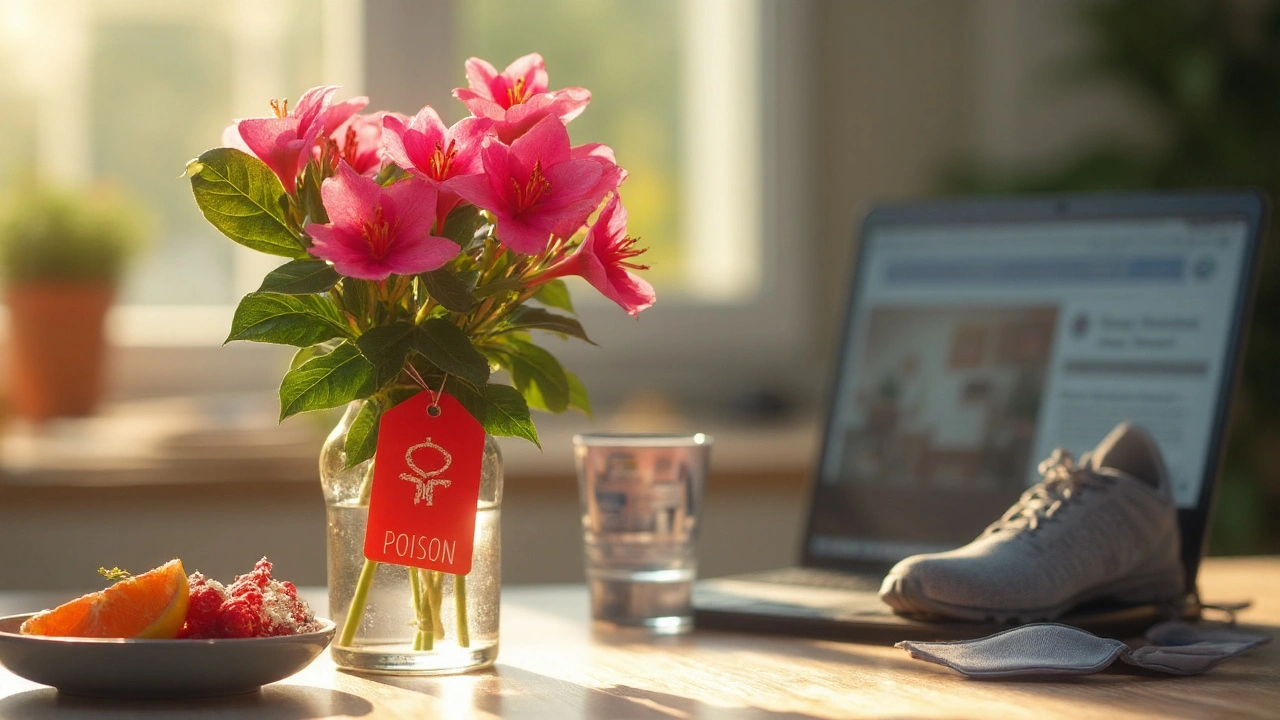
Oleander for Immunity? Toxic Risks, Evidence, and Safer Alternatives (2025 Guide)
Heard oleander boosts immunity? It doesn’t. It’s poisonous. Here’s the science, safety warnings, New Zealand context, and proven alternatives that actually help.
If you’ve ever felt a cold coming on, you’ve probably thought about popping a vitamin or a herb to stay healthy. The market is full of pills, powders, and gummies that promise to supercharge your immune system. But which ones actually help, and which are just hype? This guide breaks down the most common immunity supplements, the science behind them, and practical tips for safe use.
Vitamin C is the classic go‑to. It’s an antioxidant that helps white blood cells work better. Most studies show that taking 200‑500 mg daily can reduce the length of a cold by about a day, but it won’t stop you from getting sick in the first place. If you choose a vitamin C supplement, look for a product with no added sugar or artificial colors.
Vitamin D is a bigger deal than many realize. Low vitamin D levels are linked to higher infection rates, especially in winter when sunlight is scarce. A daily dose of 1,000‑2,000 IU is safe for most adults and can keep your blood levels in the optimal range. Check a simple at‑home test or ask your doctor if you need a higher prescription dose.
Zinc is another mineral that shows real benefits. Zinc lozenges taken within 24 hours of symptom onset can cut cold duration by up to 40 %. The sweet spot is 15‑30 mg per day; more than that may cause nausea or affect copper levels, so stick to the recommended range.
Elderberry and echinacea are popular herbal options. Some small trials suggest elderberry syrup can lower flu symptom severity, while echinacea’s results are mixed. If you try them, pick a standardized extract rather than a vague “herbal blend,” and limit use to a few weeks to avoid tolerance.
First, talk to a health professional if you take prescription meds or have chronic conditions. Supplements can interact with blood thinners, thyroid meds, and even blood pressure drugs. For example, high doses of vitamin K (found in some green‑leaf blends) can counteract warfarin.
Second, read the label. Look for “USP‑verified” or “NSF‑certified” symbols—these mean an independent lab checked the product for purity. Avoid supplements that promise “100 % immunity” or claim to cure diseases; no pill can replace a balanced diet and good sleep.
Third, start low. If you’re new to a supplement, try half the suggested dose for a week to see how your body reacts. Some people feel stomach upset with vitamin C or zinc; taking them with food usually helps.
Finally, remember that timing matters. Vitamin C and zinc work best when taken throughout the day, while vitamin D is fat‑soluble, so pair it with a meal that contains healthy fats like avocado or nuts.
Putting it all together, a simple daily routine could look like this: a multivitamin that includes 500 mg vitamin C, 1,500 IU vitamin D, and 15 mg zinc taken with breakfast; an elderberry syrup on days you feel a sore throat coming on; and plenty of water, sleep, and whole foods to support what the supplements start.
At the end of the day, immunity supplements are tools, not miracles. Use them wisely, keep track of how you feel, and stay in touch with your doctor. Your body will thank you with fewer sick days and a steadier energy level.

Heard oleander boosts immunity? It doesn’t. It’s poisonous. Here’s the science, safety warnings, New Zealand context, and proven alternatives that actually help.